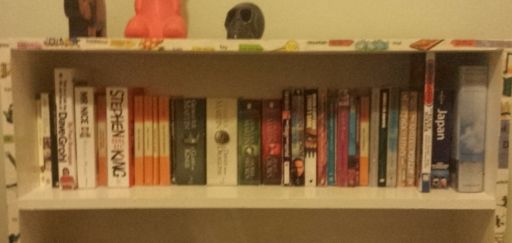Probably the most interesting question discussed in this weeks unlecture was “do you think the digitalisation of literary texts and the use of the E-reader will eventually replace the physical book completely? will the physical book become redundant”. I found this part of the lecture particularly interesting because I am rather sceptical about the future of digital publishing. While mediums like the e-reader largely simulate the physical manifestation of a published work, things like hypertext narrative make me wonder if this kind of story telling is in fact our future. It would be naive of me to say that hypertext or “choose your own narrative” kind of storytelling will never work, as i’m sure that they will become refined and embraced in the not so distant future. I am sceptical because from what I have encountered so far, alternatives to traditional fixed narratives are generally cluttered and confusing. The exception to the rule that I encounter more often than not is choice based video games like Mass Effect and Dragon Age, but this point is irrelevant when discussing the future of books.
It is my opinion, like a some of the lecturers, that while e-books may become more predominant than tangible books, the physical book maintains a nostalgic and almost romantic aesthetic, much like vinyl records in contrast to CD’s. The book in itself has a lot of cultural baggage attached. For example, we build large exquisite libraries to house these artefacts, and the book since its conception has commonly been seen as a symbol of knowledge and learning. This glorification of the book will not disappear, it may fade but it will never be lost, at least not for the next century.
I agree with adrian, however, when he said that while the physical book will retain its popularity for a very long time, it has outlived its practicality; for example, in regard to text books, data logs and so forth. Digital publishing has revolutionised the way we can store and share knowledge. Traditional literature will always preference the physical book however, because, as the name suggests, the format itself is traditional.
I hope, while digitised publications serve a convenient and practical purpose, that the publishers continue to distribute physical copies of their publications. If only so that I can look at and touch them. There is something deeply satisfying about a full bookshelf…

pictured: my bookshelf

